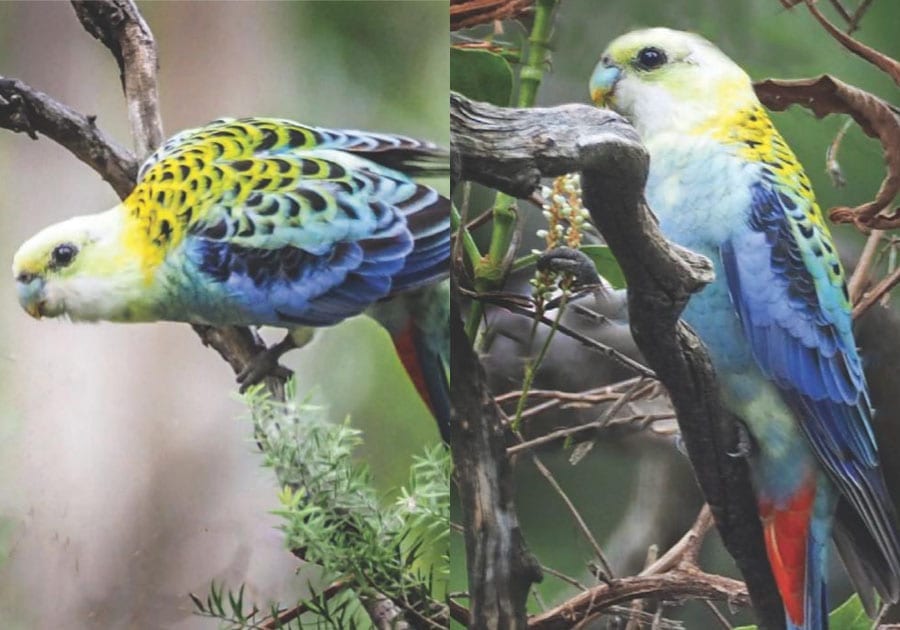Pale-headed Rosellas are one of the most colourful birds we have in our area. They are fairly common, and you may be lucky enough to have them pay a visit to your garden.
The difference between rosellas and other parrots is that rosellas have broad tails and patches on their cheeks. Pale-headed Rosellas which are the only rosellas found on Bribie Island have white cheek patches. They are 28-32 cm in length and weigh 82-102 g. Heads are pale yellow, underparts pale blue with red under the tail and, black and yellow across their backs. Females are slightly paler and smaller than males and have a white stripe on their wings. Usually, they are quite timid and are easily bullied by the more gregarious Rainbow Lorikeets when searching for food and nesting sites. In far North Queensland, there is a blue cheeked form. Pale-headed Rosellas live up to 15 years in the wild. Their preferred habitats are in lowland areas in eastern Queensland in grassy and Savanah woodlands, farmlands and parks and gardens. Usually, they feed in pairs or small flocks on the ground or in the foliage of trees and shrubs looking for seeds, berries and insects and their larvae.
August to January are their preferred breeding months. Nests are in deep narrow hollows to about 1 m in dead or living trees usually near water. The bottoms of the hollows are lined with sawdust where a clutch of 5-6 white eggs is laid. Females incubate the eggs for 9-20 days. During this time males bring food to the females on the nest. When the eggs hatch both male and female tend to the chicks. After about 4 weeks the chicks are fully-fledged and leave the nest but are not fully independent for another 2 weeks.
Pale-headed Rosella numbers have been affected in some parts by loss of dead trees with suitable hollows and by the illegal exotic bird trade, particularly in the north. The good news is that they do well on farmlands with lots of trees. There conservation status in Queensland and NSW is secure. They are not present in other states.
